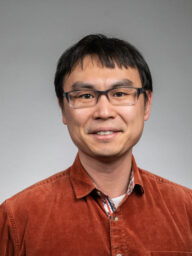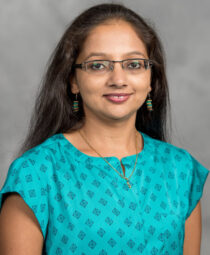CCB Colloquium – Professor Dingchang Lin, Johns Hopkins University
Electronic and molecular approaches for neural recording: deciphering the brain in space and time Resolving neuronal activity in space and time is a long-sought capability in neuroscience, which is, however, still … Read More
CCB Colloquium – Professor Keith Mickolajczyk, RWJ Medical School
Single-molecule biophysical approaches to studying the mechanisms of motor proteins Ribosomes are molecular machines made of protein and RNA that translate mRNA into proteins. The biogenesis of new ribosomes is … Read More
CCB Colloquium – Professor Xiaoyang Su, Rutgers Medical School and Cancer Institute of New Jersey
LC-MS Metabolomics Reveals the Role of SLC45A4 in GABA de novo Synthesis Affiliations: 1Departments of Medicine, Division of Endocrinology, Robert Wood Johnson Medical School, Rutgers University; 2Metabolomics Shared Resource, Rutgers Cancer Institute … Read More
Special Seminar – Professor Neha Jain, Indian Institute of Technology
CCB 3217Modulation of amyloid assembly by chaperone-like proteins Soluble proteins have an inherent propensity to undergo altered protein folding, forming cross-B sheet-rich structures called amyloids. Amyloid fibrils have gained significant attention … Read More
Special Seminar – Dr. Charles Cox, Victor Chang Cardiac Research Institute, Australia
CCB 3217Discovery and characterization of a novel family of PIEZO channel auxiliary subunits PIEZO channels are critical cellular sensors of mechanical forces. Native PIEZO1 channels can display nonuniform subcellular localization and exhibit … Read More
Special Seminar – Dr. Harry McNamara, Princeton University
CCB 3217Symmetry breaking and self-organization of a body axis from mouse embryonic stem cells Abstract: During development, the embryo must break symmetry to form body axes and patterned tissue structures. Recent … Read More




